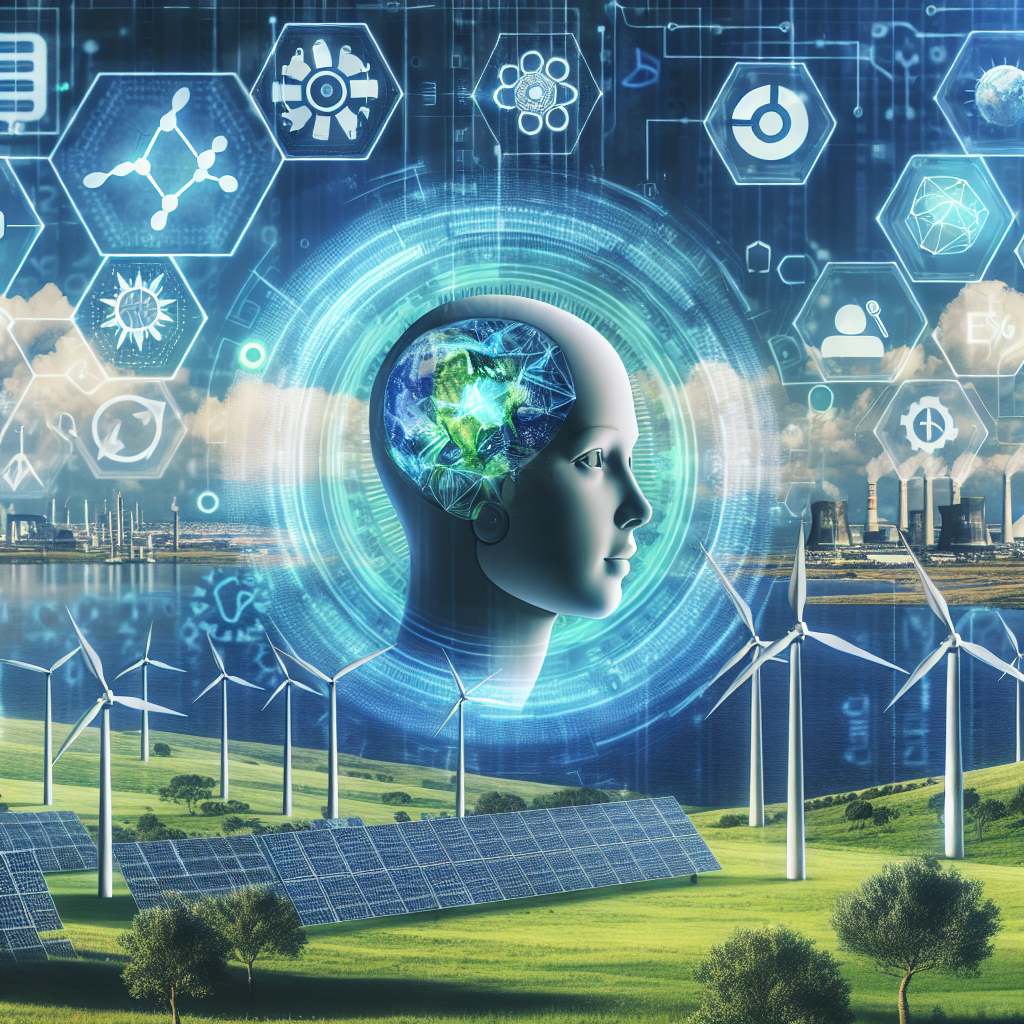AI in Renewable Energy: Optimizing for a Sustainable Future
In the quest for a sustainable future, renewable energy stands out as a beacon of hope. Solar, wind, hydro, and other renewable resources have the potential to power the world without depleting its resources or harming the environment. However, integrating renewable energy into our lives and infrastructures presents challenges, primarily due to its variable nature. This is where Artificial Intelligence (AI) comes into the picture, offering solutions to optimize renewable energy production, distribution, and consumption. By harnessing the power of AI, we can navigate the complexities of renewable energy, making it more efficient, reliable, and cost-effective.
The Role of AI in Renewable Energy
Forecasting and Predictive Analysis: One of the greatest challenges in renewable energy is its unpredictability. Solar and wind energies, for instance, are highly dependent on weather conditions. AI and Machine Learning (ML) models excel in forecasting energy production by analyzing vast amounts of historical weather and production data. These predictions enable energy providers to optimize their operations, reduce waste, and ensure a steady energy supply.
Grid Integration and Management: The integration of renewable energy sources into the existing power grid is complex. AI plays a crucial role in managing this integration smoothly. It can predict energy demand, adjust to supply fluctuations, and ensure the grid’s stability. Smart grid technologies, powered by AI, can automatically reroute power to where it’s most needed, enhancing the efficiency and reliability of energy distribution.
Maintenance and Operational Efficiency: Renewable energy installations, such as wind turbines and solar panels, require constant maintenance to operate efficiently. Drones equipped with AI-powered sensors can inspect these installations, identifying issues that are invisible to the human eye. Predictive maintenance algorithms can analyze data from these sensors to predict failures before they occur, significantly reducing downtime and maintenance costs.
Optimizing Energy Storage: Energy storage is vital for managing the intermittency of renewable sources. AI algorithms optimize the use and charging of batteries and other storage technologies, based on predictions of energy production and demand. This ensures that excess energy is stored when production is high and distributed when demand peaks, making renewable energy more consistent and reliable.
Energy Consumption Optimization: On the consumer side, AI can make energy usage more efficient. Smart home devices, such as thermostats and lighting systems, can learn from user behavior and adjust to reduce energy consumption without sacrificing comfort. AI can also manage the energy flow in buildings and even across cities to minimize waste.
Real-World Applications of AI in Renewable Energy
Companies and governments worldwide are recognizing the potential of AI in revolutionizing the renewable energy sector. For example, Google has achieved significant reductions in cooling costs at its data centers by using an AI-powered system to optimize energy use. In another instance, DeepMind Technologies, in collaboration with the UK’s National Grid, is exploring ways to use AI to predict supply and demand peaks, aiming to reduce energy waste and carbon emissions.
Moreover, startups like Stem are leveraging AI to enhance energy storage, offering solutions that help businesses minimize their energy costs and carbon footprint. These real-world applications underscore AI’s potential to address some of the renewable energy sector’s most pressing challenges.
Challenges and Considerations
Despite its promise, the integration of AI into renewable energy does not come without challenges. Data privacy and security are major concerns, as AI systems rely on vast amounts of data to function. There’s also the issue of making sure these technologies are accessible to all, preventing a digital divide in energy access. Moreover, the reliance on AI and digital technologies raises questions about the energy consumption of data centers, which must be addressed to truly realize a sustainable future.
FAQs
Q: Can AI completely replace human intervention in renewable energy management?
A: While AI can significantly optimize and automate many processes, human oversight and intervention remain crucial, especially in decision-making and managing unforeseen events.
Q: Is AI in renewable energy affordable?
A: Initially, implementing AI technologies can be costly. However, the long-term savings in operational costs, maintenance, and energy efficiency often justify the investment.
Q: How does AI contribute to sustainability?
A: AI optimizes the production, distribution, and consumption of renewable energy, reducing wastage and ensuring efficient use of resources. This contributes to a more sustainable and environmentally friendly energy landscape.
Q: Can AI predict all types of maintenance issues in renewable energy installations?
A: While AI can significantly improve predictive maintenance, it’s not foolproof. Some issues may still go undetected, underscoring the importance of regular inspections and maintenance checks.
Q: How can consumers benefit from AI in renewable energy?
A: Consumers can benefit from reduced energy costs, more reliable energy supplies, and the opportunity to contribute to a more sustainable and eco-friendly energy system.
Conclusion
AI’s role in renewable energy is transformative, offering innovative solutions to enhance the efficiency, reliability, and sustainability of energy systems. By optimizing every aspect of renewable energy, from production to consumption, AI technologies are paving the way for a more sustainable future. Despite the challenges, the potential benefits of integrating AI into renewable energy systems are immense, promising not only to revolutionize the energy sector but also to play a crucial role in combating climate change and preserving our planet for future generations.

